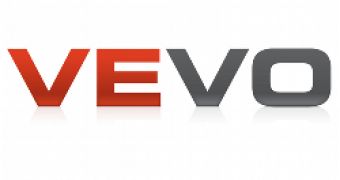The online music video is about to get a lot more contested. Currently YouTube is the only place to host licensed music videos from all of the major music labels and Vevo looked like the only promise for a dedicated music video site. But things are getting interesting with the launch of MySpace Music Videos, a video hub with content from all of the major music labels, which all of a sudden makes Vevo look a lot less appealing. Hailed as Hulu for music videos, Vevo only has the backing of two major labels and until now talks with the other two seemed pretty much dead. This apparently isn't the case anymore as both EMI and Warner Music Group are said to be in talks with Vevo for a partnership or a licensing deal.
There aren't any details other than the fact that the smallest of the four major labels are discussing with Vevo about joining as partners along with Universal and Sony. This sudden change of heart may be linked to several factors and the changing landscape in the online video market. Warner has recently signed a licensing deal with YouTube after a breakup of about a year for example and MySpace just upped the ante with their own offering.
Warner and YouTube have finally settled on a mutually beneficial agreement and the former has big plans with music video. On YouTube the music label will have a dedicated and branded Channel, like all of the other labels, but will also manage the advertising for the site. It is also launching its own music video site, a move that at the time seemed to indicate that it had no interest in Vevo. EMI has been historically reluctant to jump onto any new venture but, at the same time, it has followed the general trend set by the other three.
Meanwhile, MySpace Music Videos has become the one to beat for Vevo as the newly launched video hub has content from all four labels. It's unlikely that Universal and Sony would sabotage their own venture by licensing music to MySpace if they didn't think they could also secure the rights from the other two labels for Vevo. At the same time, the fact that both Warner and EMI have signed with MySpace shows that they are opened to licensing deals and that they may strike some sort of arrangement with Vevo even if it is only a licensing agreement and not a full partnership. Vevo is on track to be launched sometime this year and by that time all of this should be clear.

 14 DAY TRIAL //
14 DAY TRIAL //